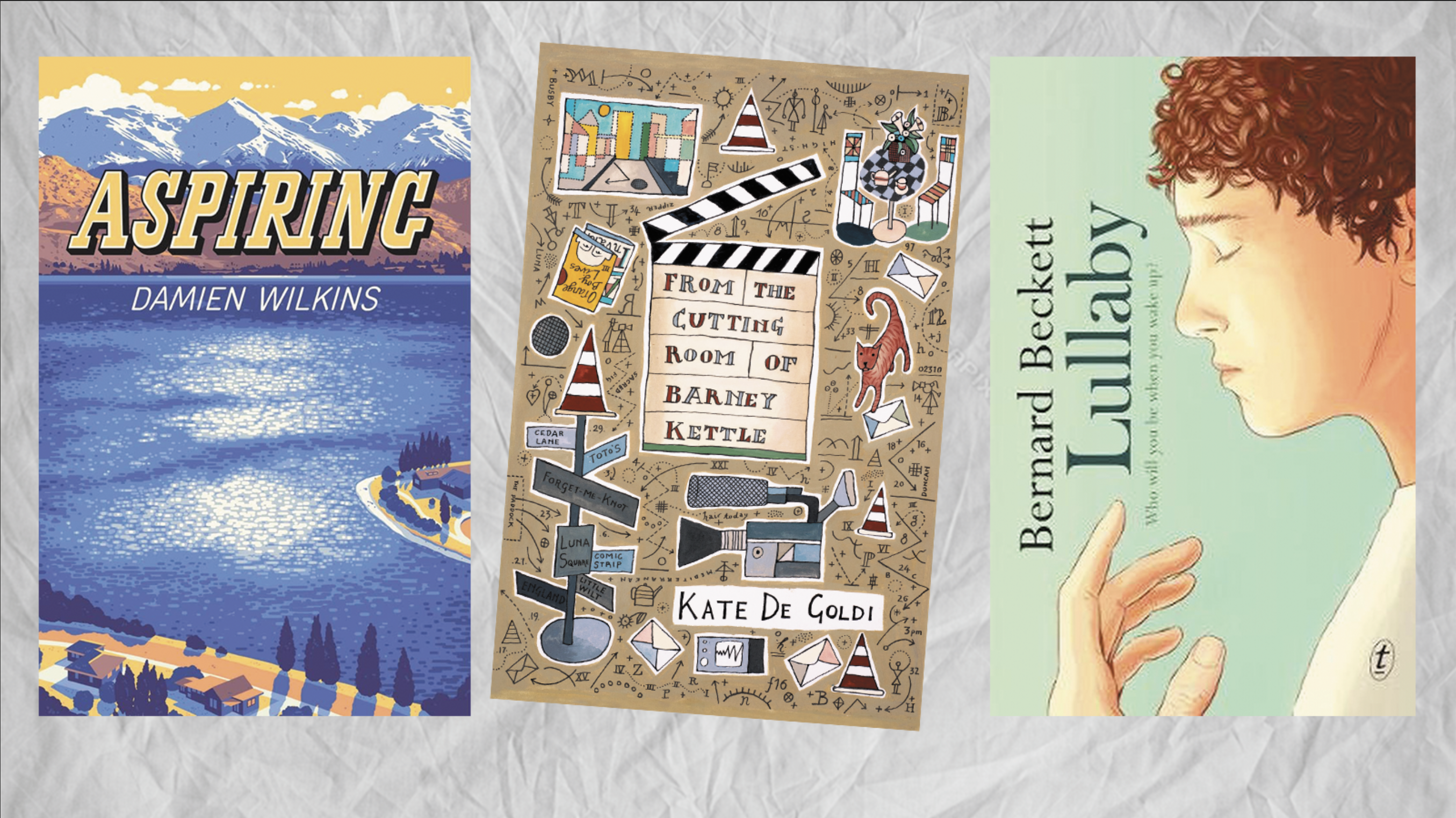A fleeting comment on Radio NZ about books set in Aotearoa made student and book reviewer Hannah Marshall uneasy. She sets out on a quest to figure out why it is that we don’t want to set our books here, and the image problem books set in New Zealand seem to have.

“I mean, we love Wellington, but people aren’t going to pick up a book set there.”
It was a fleeting comment, said with a laugh, that made me raise my eyebrows. The words were uttered by Wellington-based writer Sarah Powell, author of the recently released YA fantasy novel Alyssa: Welcome to New York, when asked on Kathryn Ryan’s Nine to Noon show on RNZ why she chose not to set her debut in New Zealand.
I searched for the interview afterwards online, and listened to the crucial moment again. And again. And again. There it was: the ruthless slandering of New Zealand as a setting, embellished with a careless laugh.
To be honest, I wasn’t surprised.
There is was: the ruthless slandering of New Zealand as a setting, embellished with a careless laugh.
We New Zealanders are proud of our country, if in a humble, toned-down kind of way. We’re patriotic in a quiet sense. But there’s one area in which we’re afflicted with a severe case of cultural cringe: our literature.
I see it everywhere. I grew up with it. I’ve written reviews for stunning New Zealand novels that seemingly no one else had ever heard of, nor was anyone interested in reading even after my recommendation. I’ve sat in creative writing classes and seen New Zealand abandoned as a setting entirely. I spent my high school years with friends who left locally-written library books abandoned on the shelf, because Kiwi writers suck, New Zealand books are boring, and who on earth wants to read books set here?
Not many people, apparently.
Don’t get me wrong: of course there are books set in New Zealand. There are plenty of them, as a matter of fact. And they happen to be just as good, if not better, than the American/British clones of The Fault in Our Stars that dominate the YA shelves at Whitcoulls. And yet, there’s an attitude that exists among Kiwi readers that homegrown books are somehow inferior to the international big-name bestsellers. And, with Sarah Powell, it’s evident that this belief has rubbed off on New Zealand writers, too.
But why?
…there’s an attitude that exists among Kiwi readers that homegrown books are somehow inferior to the international big-name bestsellers.
New Zealand, understandably, has a small publishing industry. There’s going to be more international titles filling our bookshelves than the output produced by our local publishers, and there probably always will be. Overseas publishers have more money and resources to put into larger marketing campaigns than New Zealand publishers can afford, so it’s inevitable that we will always be exposed to more of what’s written internationally than what’s been written here. And since a smaller local industry means lesser chance of reaching international success, setting books in wider-appeal settings like America or the UK may be a strategic way of catching international publishers’ attention. But that’s not an excuse for why we’re not picking up Kiwi books.
The way I see it is that most of us seem to think that New Zealand books are boring. It’s a frame of mind that’s definitely not true, but it’s one that’s stuck around. We certainly don’t celebrate New Zealand books (OK, with the exception of The Sapling!); and most of the time, we barely acknowledge that they’re there. When I made a goal for myself to read more New Zealand books a couple of years ago, I was surprised to discover how many there actually are. And, recently, when I told a friend how I’d been reading several books set in Wellington, she replied with, “Those exist?” The Kiwi books are there, but we don’t bother to look.
The Kiwi books are there, but we don’t bother to look.
Local books aren’t being promoted by all of our schools, libraries, and bookshops in the way they should be. When I was in high school, we studied a New Zealand-written book once, and the general consensus from the class was that no one really liked it anyway. Was this because it simply wasn’t a great book, or because it was a New Zealand book? I don’t know, but I doubt the book would have been received so harshly had it been set somewhere offshore.
Reading is about escapism, and I’m all for reading books set in new locations, times, and countries. I don’t have a vendetta against reading internationally or reading what’s been popular overseas. My problem is with the way Kiwi-written books are so easily side-lined by readers and writers. There is something undeniably satisfying about reading work that’s set somewhere familiar, and there’s value to be found in exploring the places, ideas and problems that are unique to New Zealand. In other words, there’s just as much — and maybe more — to be gained though reading local, not less.
There is something undeniably satisfying about reading work that’s set somewhere familiar,
There is something undeniably satisfying about reading work that’s set somewhere familiar…
Sarah Powell’s dismissal of New Zealand as a setting perplexes me, but it’s ultimately unsurprising. This is an attitude that’s held strongly by many Kiwi readers and writers, but not one that’s fair. Kiwi books are just as worthy of attention as international titles, and the ones already out there deserve all the praise they can get. We desperately need more celebration, and less cringe, when it comes to our own literature. It’s definitely worth it.
Editors’ note: The Reckoning is a regular column where children’s literature experts air their thoughts, views and grievances. They’re not necessarily the views of the editors or our readers. We would love to hear your response to any of The Reckonings – join in the discussion over on Facebook.

Hannah Marshall is a reader, writer, and advocate for New Zealand books from Wellington. She has a Bachelor of Arts in Media Studies from Te Herenga Waka—Victoria University of Wellington, and she is currently doing her Master of Arts in Creative Writing at VUW's International Institute of Modern Letters. Her debut YA novel, It's a Bit More Complicated Than That, is being published by Allen & Unwin in 2025.



